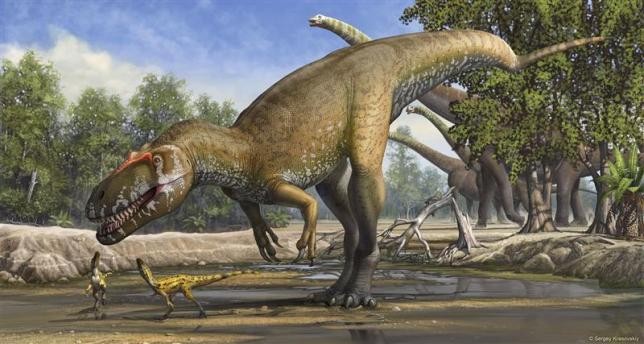Scientists are to study Chicxulub crater samples that could unveil the asteroid impact on the extinction of dinosaurs more than 60 million years ago.
A 5,000 foot drill beneath the seabed's surface will be probed by scientists in an aim of unraveling mysteries of the ancient world events. The geological sample obtained in a 60-day long effort will mark as the first object to have been obtained from the crater's center, located in the Yucatan Peninsula, Mexico.
Dinosaurs reigned 135 million years before extinction was imposed by a massive impact. The asteroid left a 9-mile evidence, set off debris and dusts into the air to a point of blocking the sunlight, and ignited forest fires across the globe. Altogether, these series of events wiped-out dinosaurs and a few species of animals and plants.
The drilling, which will gather rare specimens from the impact crater, is scheduled to commence in the spring of 2016. A team of researchers from different organizations and laboratories have initially met in Mexico to lay the expedition's plan.
Sean Gulick from the Austin Institute for Geophysics said, "The sediments that filled in the [crater] should have the record for organisms living on the sea floor and in the water that were there for the first recovery after the mass extinction event. The hope is we can watch life come back," Jackson School of Geosciences published.
After the extraction of the core, the samples will be sent immediately to Germany. It will be examined first by several research groups from different countries, including the United Kingdom, Mexico, and the United States. The remaining samples will be kept in Texas' A&M University core repository for future studies.
Gulick, in another event, said "[The Chicxulub crater] is the only impact crater linked to a mass extinction event - therefore, it is an incredible opportunity to study how life recovered after the mass extinction," the Daily Texan Online reported.



























